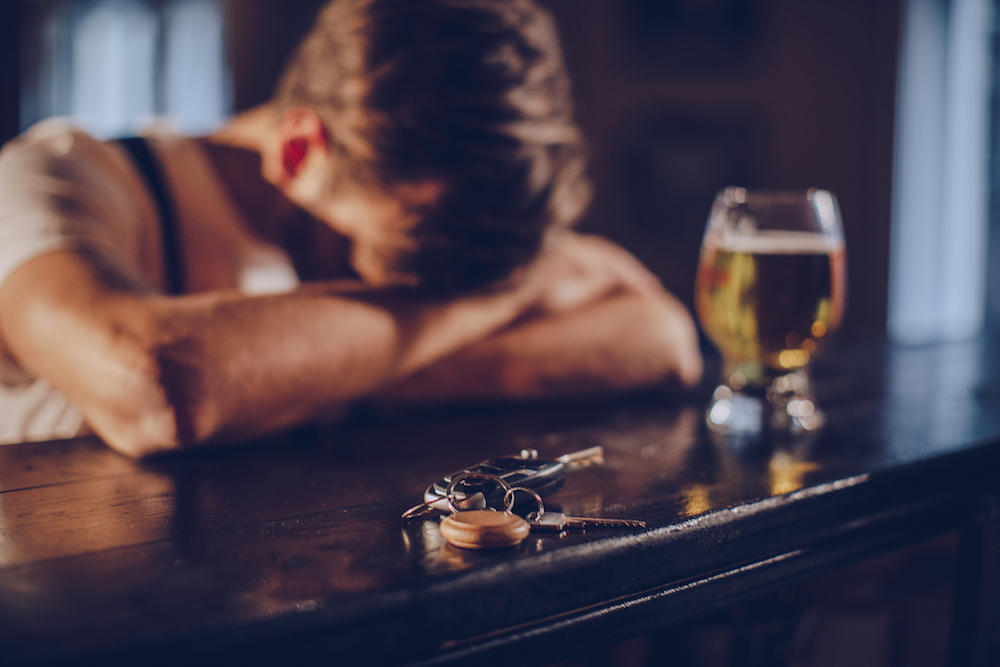What is Binge Drinking?
Binge drinking is defined as consuming a large amount of alcohol in a short period of time. The specific definition can vary slightly, but generally, it's considered consuming:
- For men: 5 or more drinks in about 2 hours
- For women: 4 or more drinks in about 2 hours
It's important to note that these numbers are averages, and individual tolerance to alcohol varies. Factors like body weight, metabolism, and even gender can influence how quickly alcohol affects a person.
The Tie Between Binge Drinking and Alcohol Use Disorder
Binge drinking is a significant public health concern. While not synonymous with alcoholism, it's a critical risk factor for developing Alcohol Use Disorder (AUD).
Here's a closer look at the connection between binge drinking and AUD:
Binge drinking increases the risk of developing AUD. This pattern of excessive consumption can lead to tolerance, dependence, and, ultimately, addiction.
The consequences of binge drinking extend far beyond individual health. Societal costs are immense, including:
- Economic burden: Lost productivity, healthcare expenses, and criminal justice costs total billions annually.
- Health risks: Increased risk of accidents, injuries, sexual assault, and long-term health problems like liver disease and cancer.
- Social consequences: Strain on relationships, academic or job performance issues, and legal troubles. ░
The Dangers of Binge Drinking
Binge drinking can lead to a multitude of health problems, including:
- Increased risk of accidents, injuries, and violence
- Liver damage, including cirrhosis
- Heart problems, such as high blood pressure and heart disease
- Weakened immune system, making you more susceptible to infections
- Mental health problems, such as anxiety and depression
- Certain cancers
- Malnutrition, due to depleted vitamins and nutrients
Binge drinking can also be particularly harmful for specific groups:
- Teens and young adults: Binge drinking can damage the developing brain, leading to problems with memory, learning, and decision-making.
- Older adults: Alcohol can interact with medications and worsen existing health conditions.
Early Intervention: A Crucial Step
When alcohol abuse begins to disrupt a person's life, intervention is essential. This might involve a concerned friend or family member expressing their worries, or it could require professional help. Common approaches include:
- Direct confrontation: Addressing the problem head-on, outlining specific concerns and consequences.
- Professional intervention: Hiring a trained specialist to facilitate a group intervention.
- Setting boundaries: Creating distance to emphasize the seriousness of the situation.
Unfortunately, many individuals deny or resist help. Alcoholism is often characterized by denial, defensiveness, and irrational behavior. While some people can engage in constructive conversations, others may react with hostility. In these cases, professional intervention is often necessary.
Professional Treatment for Binge Drinking & Alcohol Use Disorder
Effective treatment for binge drinking and alcoholism is available. The best approach depends on the individual's needs and the severity of the problem.
Treatment options include:
- Inpatient rehab: Provides 24/7 care in a structured environment, including medical supervision for detox and therapy.
- Intensive outpatient programs (IOP): Offer structured treatment while allowing individuals to maintain daily responsibilities.
- Outpatient therapy: Provides therapy sessions on a less intensive schedule.
Relapse Prevention
Maintaining sobriety is a long-term process. Evidence-based strategies include:
- Participation in support groups like Alcoholics Anonymous (AA)
- Ongoing therapy and counseling
- Medication management
- Developing healthy coping mechanisms
- Building a strong support network
It's essential to remember that recovery is a journey, and finding the right treatment plan is crucial for long-term success.
Seek Help for Binge Drinking at Beach House
Binge drinking is a serious problem with far-reaching consequences. While it's not always a direct path to alcoholism, it significantly increases the risk. Understanding the dangers and seeking help when needed are crucial steps toward a healthier life.
If you or someone you know is struggling with binge drinking or alcohol abuse, our team is here to help. There are effective treatment options available.
Contact us today to learn more about your options and begin your journey to recovery. Remember, you're not alone.






